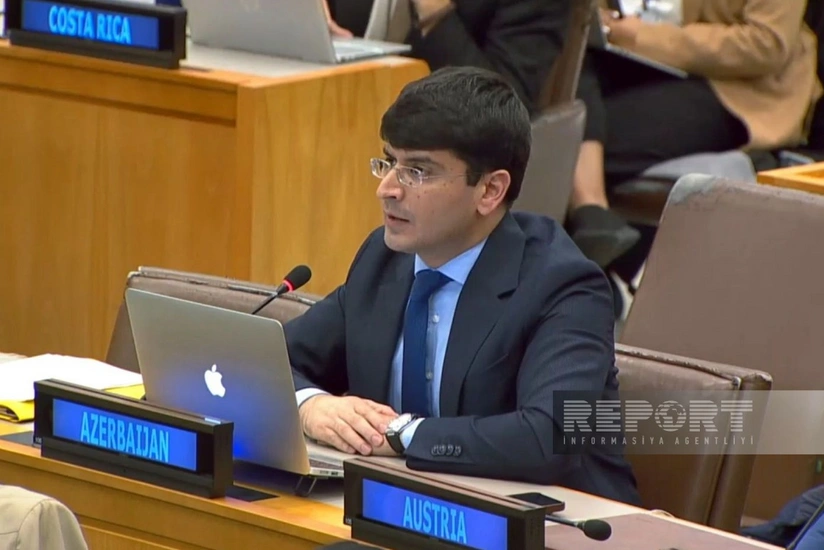Azerbaijan informs UN about national measures to protect children's rights
- 14 October, 2025
- 08:22

Azerbaijan has provided the United Nations with information on national measures taken to protect the rights of children, Shahriyar Hajiyev, First Secretary of Azerbaijan"s Permanent Mission to the UN, said during discussions of the Third Committee of the 80th session of the UN General Assembly on human rights.
According to Report's US bureau, the diplomat informed representatives of member states about national actions undertaken in Azerbaijan in the field of child protection and development.
Hajiyev spoke about the key points of the National Strategy for Children for 2020–2030, approved by the President of Azerbaijan, which serves as an important roadmap for protecting children's rights and addressing issues on the national agenda:
"Children make up about 30% of the country's population. We are implementing targeted measures to protect children's rights. Accession to nearly all international and regional legal instruments relating to children's rights has paved the way for legislative reforms. The National Strategy for Children for 2020–2030, approved by the President of Azerbaijan, outlines the main issues and strategic approaches for addressing problems related to child protection and development. Azerbaijan pays special attention to the social protection of vulnerable groups of children, including those without parental care, children with disabilities, and children from internally displaced families."
The country's representative to the UN noted that Azerbaijan has also made child protection and development a priority in its post-conflict policy. It was highlighted that, following reconstruction and restoration efforts in the liberated territories, about 3,500 internally displaced persons resumed education in those regions in September 2025.
He added that widespread landmine contamination poses serious obstacles to the return and resettlement of former IDPs on their native lands, including children:
"Mines, deliberately planted since the 1990s, have killed or severely injured more than 3,400 people, including 362 children and young people. This issue requires the application of UN child rights mechanisms to effectively address the problem."
